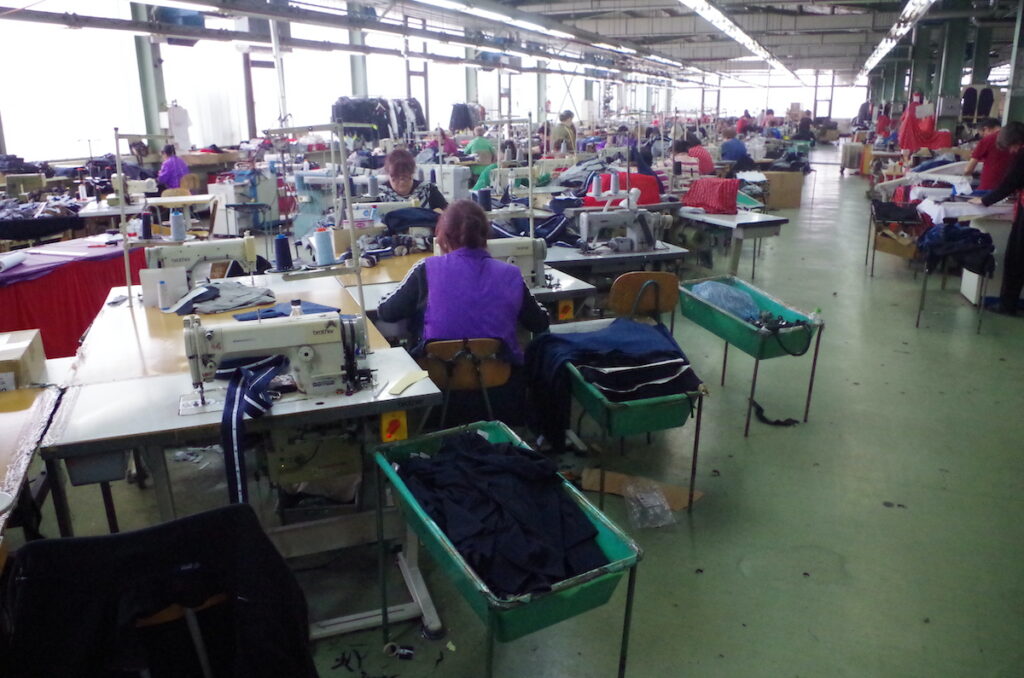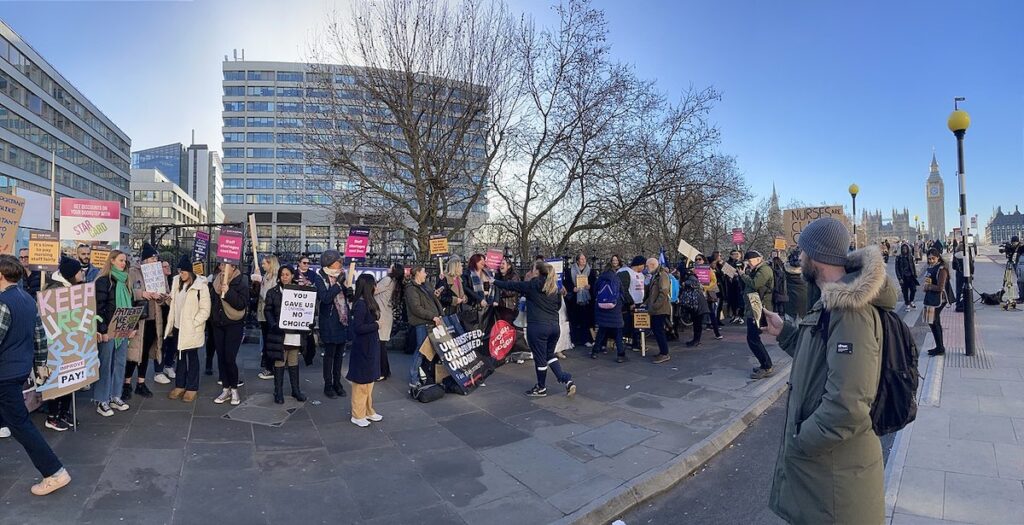“In our textile factory there is no union. This allows our bosses to manipulate us. In a company near ours, the union representative is close to the owner, so it is no better there.
“I got fed up, so I started sending complaints to the labour inspectorate. One was for mobbing [harassment] – for not letting employees visit a toilet. Another was for unpaid overtime and one was because [the bosses forced me] to hand back part of my salary. But it was futile as I sent the complaints anonymously, because I feared being fired.
“Fear kills our hope.”
This 47-year-old single mother from Stip, North Macedonia, insisted on anonymity. During communist Yugoslavia, she said, women in her town were proud to be textile workers. The status meant emancipation and a decent wage. Through the active union, they also had a say in how the factory was run.
Now, the industry is a symbol of exploitation. The union has long turned into a puppet where owners and politicians, not workers, have control. This has stifled the voices of women, in particular.






